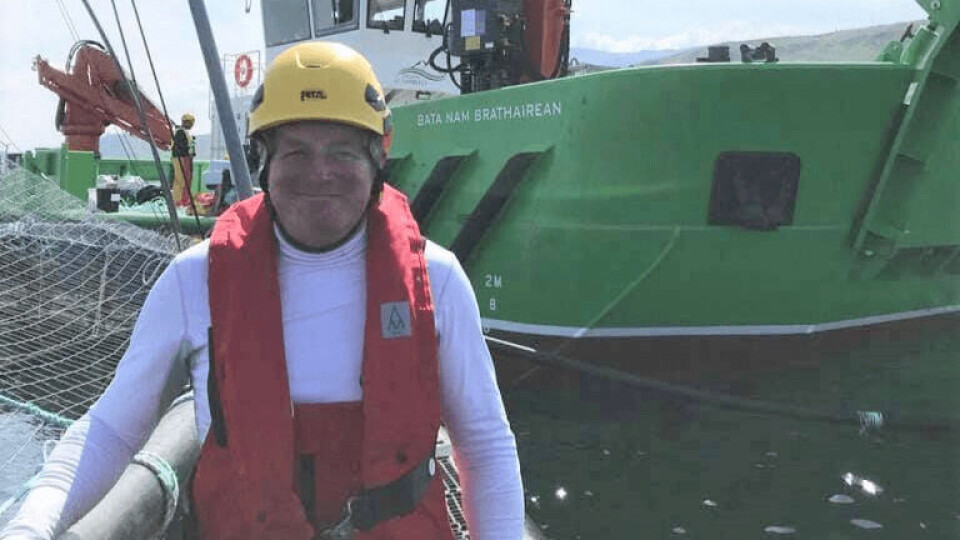
Looking back, thinking ahead: Alex MacInnes
Fish Farming Expert has asked individuals connected to the salmon farming industry about their year, and what they hope for in 2022. We continue the series with Alex MacInnes, director of Scotland’s newest salmon farmer, Organic Sea Harvest Ltd (OSH).
2021 has been a record year for the Scottish salmon industry in terms of harvests, but more volume doesn’t necessarily mean bigger profits. How has your company fared this year?
As the newest salmon producer in Scotland, Organic Sea Harvest commenced trading (in respect of fish sales) in the middle of 2021. We have been working with our customers, local and worldwide, to offer them the very best organic salmon from the Isle of Skye. It is perhaps too early to say any more than this, but so far, we have received a lot of praise for our organic salmon.
What was the most significant event of 2021 for your company?
It has been around 10 years since we launched the first feasibility studies and investigations into what has now grown into Organic Sea Harvest. This year marked our very first harvest, with our hardworking, dedicated farming teams working around the clock to ensure smooth operations - our huge thanks to them for working as hard as they do. Our staff team has continued to grow too, creating more jobs in the local community. We also launched our ‘Bho Mhuir Gu Tir’ community fund, in conjunction with our feed supplier Cargill, which has meant that local organisations, charities, and individuals, can apply for money to help their community projects and initiatives.
Organic Sea Harvest has Scottish Gaelic at the heart of the company, and we were delighted to launch our ‘Facal Gàidhlig Friday’ word-of-the-week in 2021 to showcase our commitment to the language and encourage others to learn it. We are proud to support the #cleachdi Gaelic language initiative too.
What are the most significant challenges and opportunities for the salmon farming industry in the coming year?
The industry and wider seafood sector have faced the challenges of the Covid-19 pandemic and Brexit over the past year. Since the launch of COP26, the climate change emergency has also become a key strategic discussion point.
But these challenges also create interesting opportunities, and it is fair to say that the industry has, is, and will continue to meet all these challenges while at the same time seeking to grow and prosper the economy in general.
Next year will be an important year for the industry as the sustainable building blocks of growth are put in place to allow us to progress to the next strategic level of the vision.
The biggest challenge will be receiving the necessary levers to grow as OSH and other businesses are now being held back by the regulatory process. The refusal of planning permission for our third and fourth OSH farms during 2021 is painful to say the least, but we remain optimistic that 2022 will mark a turning point for the industry.
Tomorrow: Professor Simon MacKenzie, newly appointed head of the University of Stirling's Institute of Aquaculture.























































